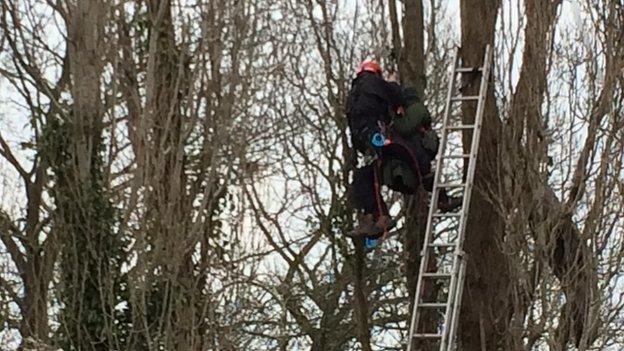Extinction Rebellion 'stemmed from failed bus lane protest'
- Published
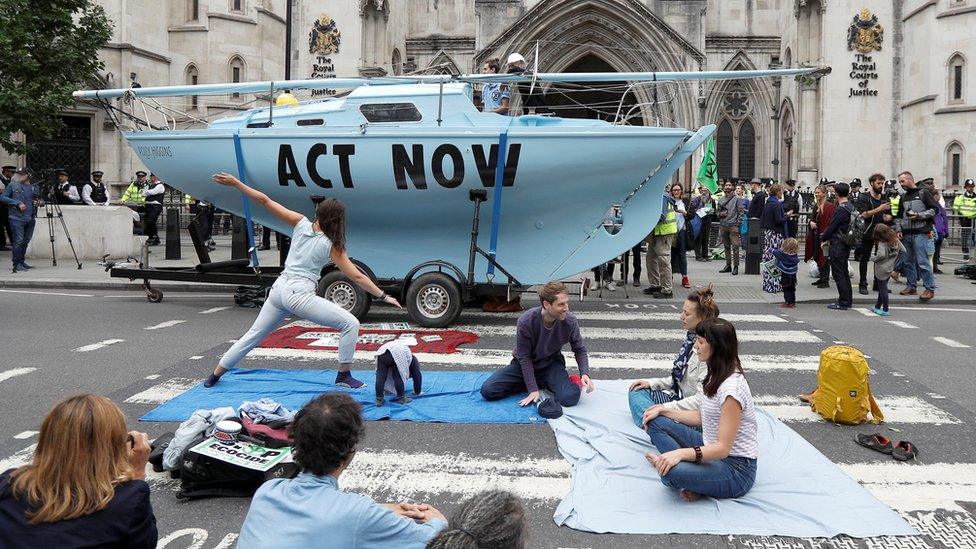
Extinction Rebellion climate activists outside the Royal Courts of Justice in London
A failed protest over a bus lane and a psychedelic drug retreat had key roles in forming a global climate protest movement, two founders have revealed.
Extinction Rebellion now claims to have 100,000 members on its database.
Simon Bramwell said he felt an "acute sense of loss" after protests in Bristol in 2015 that saw campaigners living in trees that were cut down to make way for the Metrobus.
Gail Bradbrook said she "prayed for the codes for social change" on a retreat.
Extinction Rebellion describes itself as a "non-violent civil disobedience activist movement". Its mass protests have been controversial - 1,200 campaigners were arrested in London in May after parts of the capital were brought to a halt.
Four years earlier Mr Bramwell, from Stroud in Gloucestershire, took part in the Stapleton allotment protests that saw campaigners perch in trees for more than a month before being evicted.
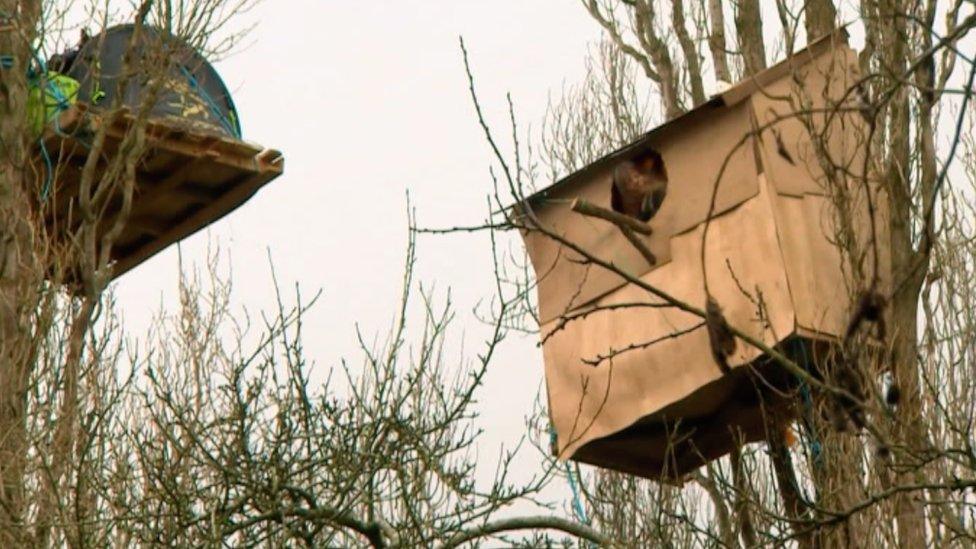
More than £1m was spent in 2015 removing the Stapleton allotment protestors
They were opposing the construction of a new bus lane that connected to the M32, along with several new bus stops and a bridge. The protestors claimed the land was some of the most fertile in the area but ultimately they were moved on and the work took place.
The protest led - in part - to the formation of Extinction Rebellion and its new approach to demonstrations.
"The acute sense of loss saw me meeting up with Gail Bradbrook to build campaigns of civil disobedience", said Mr Bramwell.
"You have to be disruptive unfortunately," said Dr Bradbrook, who has a PhD in molecular biophysics.
The 47-year-old said she came up with the idea for Extinction Rebellion after "praying for the codes for social change" while on a retreat with psychedelic medicines.
"I've always been interested in how things change, in social change. I was involved in the animal rights movement as a young woman. I've been involved in issues around gender and racism," she said.
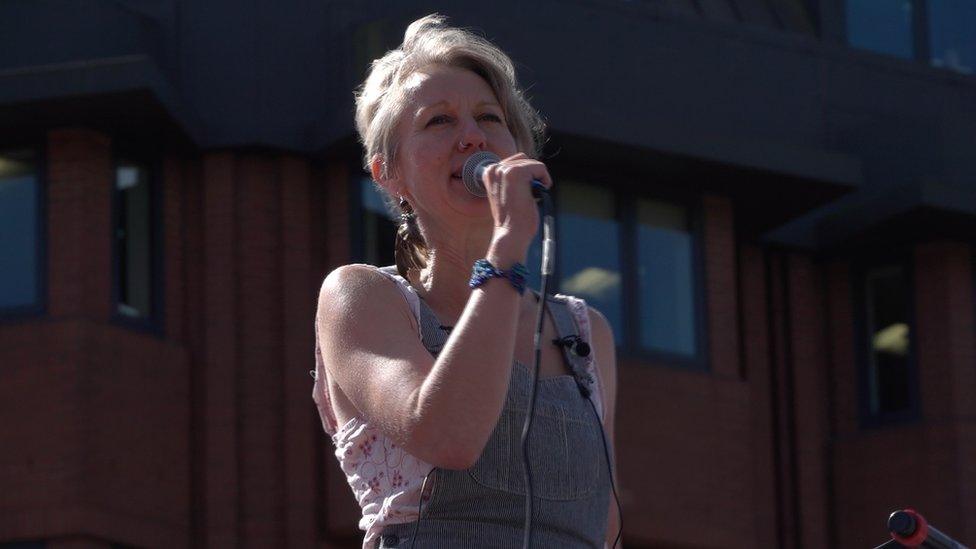
Gail Bradbrook believes "human beings might become extinct"
"I've been focused on trying to start civil disobedience since 2010 and tried lots of things that didn't work. So I actually went on a retreat and prayed deeply, with some psychedelic medicine… it was a really intense experience.
"I prayed for the codes for social change… and within a month, my prayers were literally answered."
Extinction Rebellion has outlined three demands: that the government is transparent on climate change, for the UK to be carbon neutral by 2025, and for a "citizen's assembly" on environmental policies.
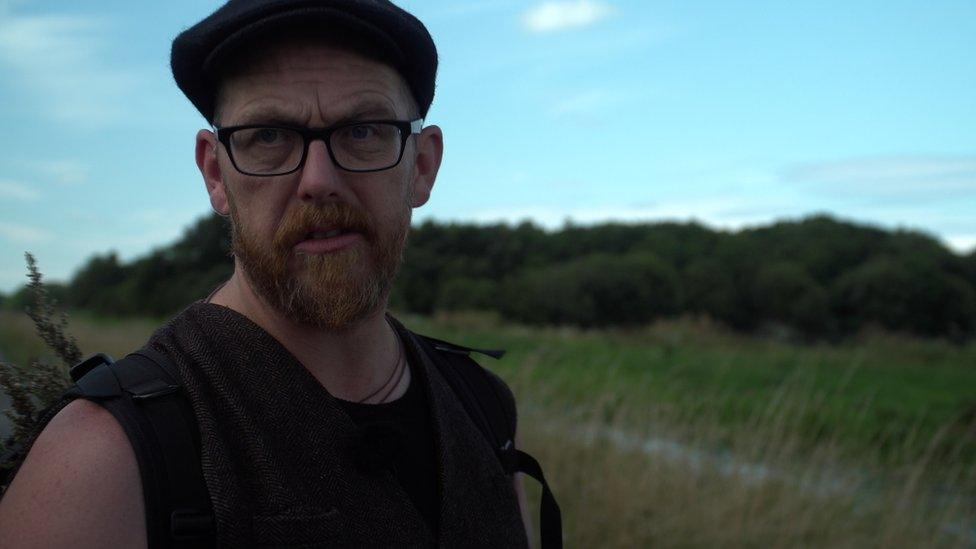
Simon Bramwell said he knew how he would feel if he couldn't see a dying relative
A protest in Bristol in July caused disruption that prevented one man seeing his dying father in hospital.
"I can't communicate with any degree of real depth how sorry I am [that that] happened," said Mr Bramwell.
"My mum's quite ill... and I know how I'd feel if I didn't make it to her bedside during her death.
"We've become so siloed in the way we think, where the media picks up on that, but tens of thousands of people are dying each year from air pollution in the UK.
"I have a huge sense of responsibility to pass on a better planet to our children."
Further demonstrations in major cities and smaller towns around the UK and in other countries have brought both disruption and headlines.
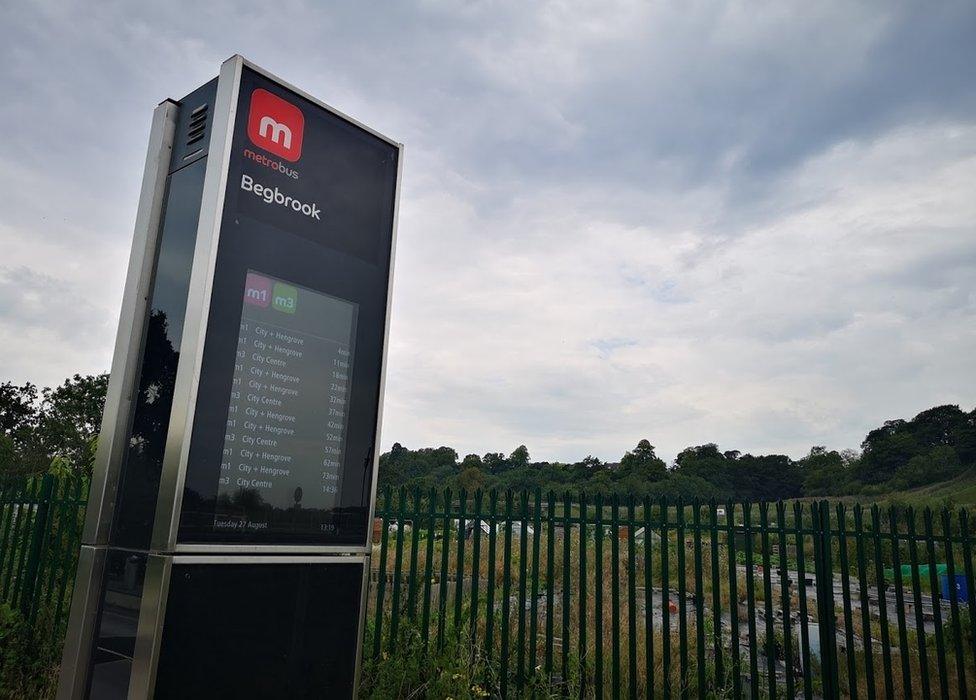
When the protests at the allotment failed part of it was built on for a new bus lane and stops
April's protests in London cost the Metropolitan Police an extra £7.5m, including overtime payments and the cost of bringing officers in from other forces, its Commissioner Cressida Dick said.
Earlier this summer, Extinction Rebellion estimated that, in addition to the arrests made in London, about 400 of its demonstrators had been arrested internationally since October 2018.
Dr Bradbrook said: "It's only by being disruptive that you get people to have a conversation about an issue.
"We started this thing in my house with 12 of us saying 'let's do this', and within a year it's gone global.
"We've got 130 groups across the UK, we're in 59 countries, and it's growing all the time."
The full story features on Inside Out West on BBC One, Monday 2 September at 19:30 BST.
- Published30 August 2019
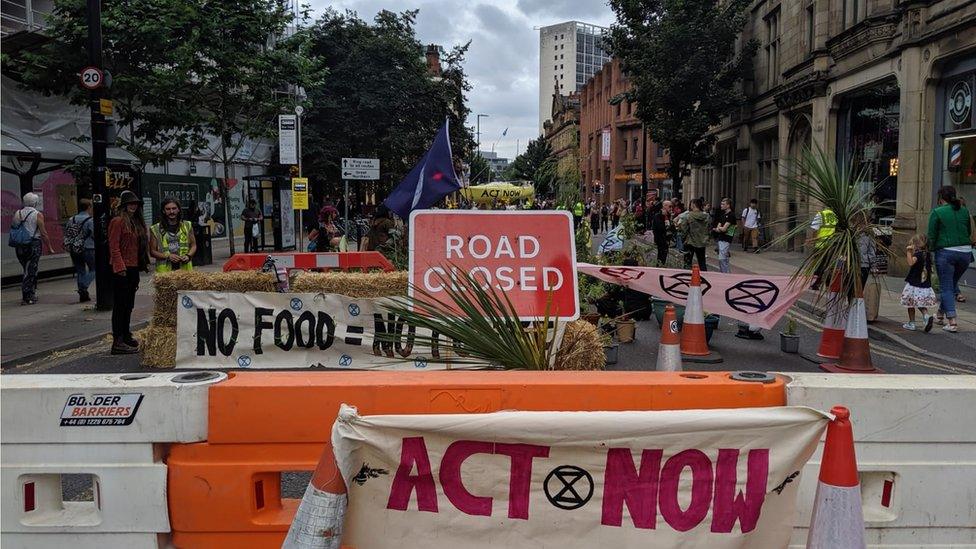
- Published5 August 2019
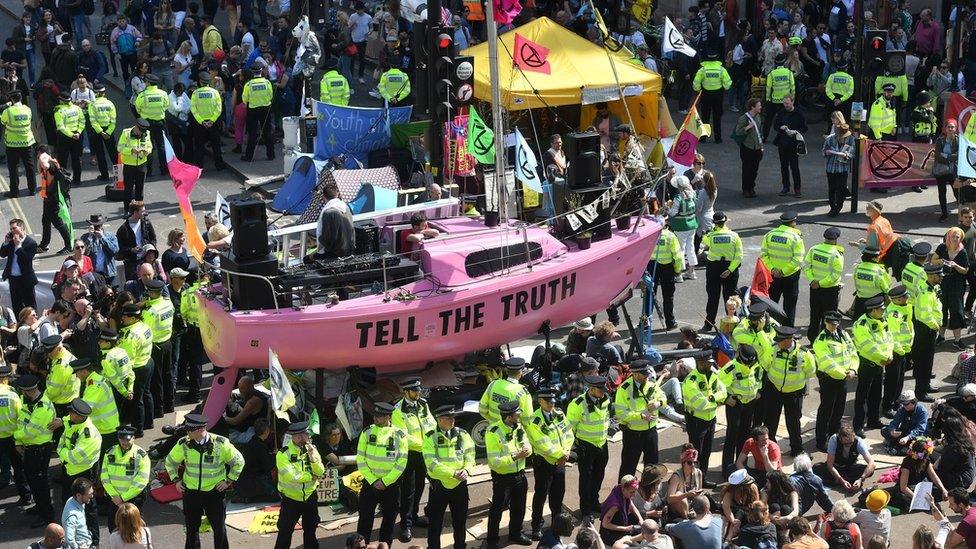
- Published29 July 2019

- Published18 July 2019
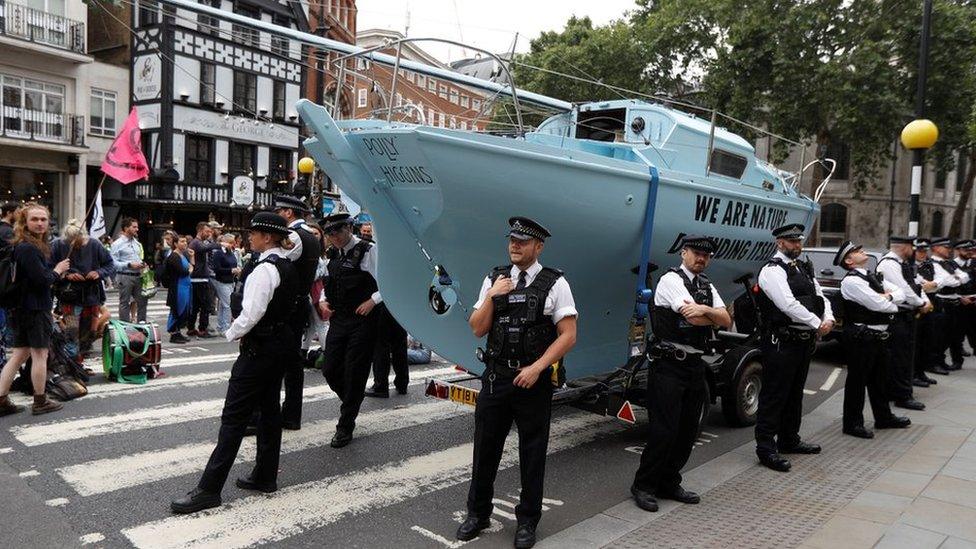
- Published17 July 2019
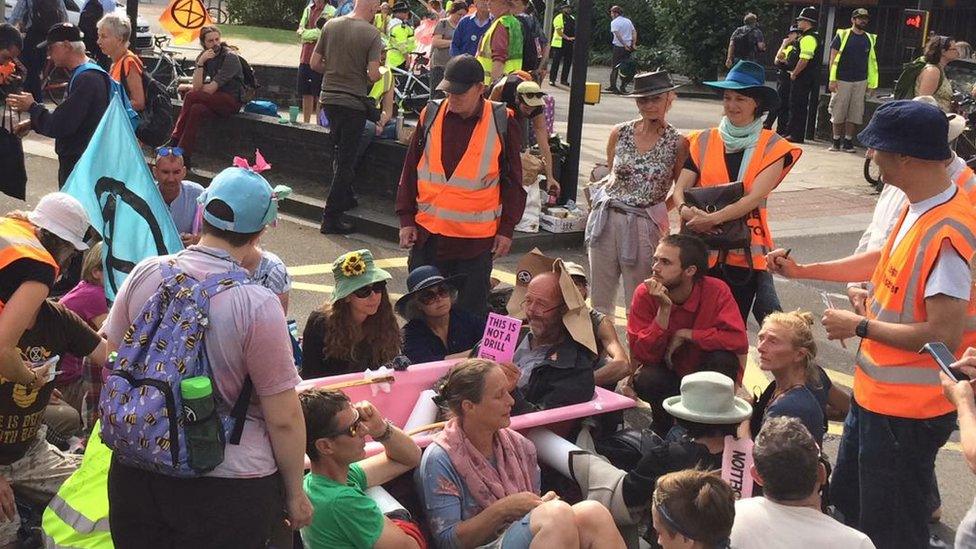
- Published14 April 2022
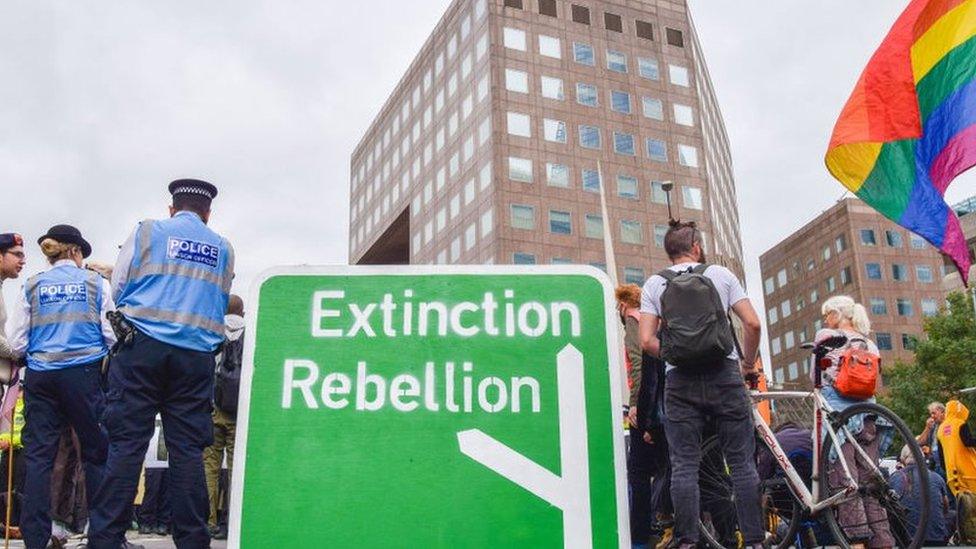
- Published25 April 2019
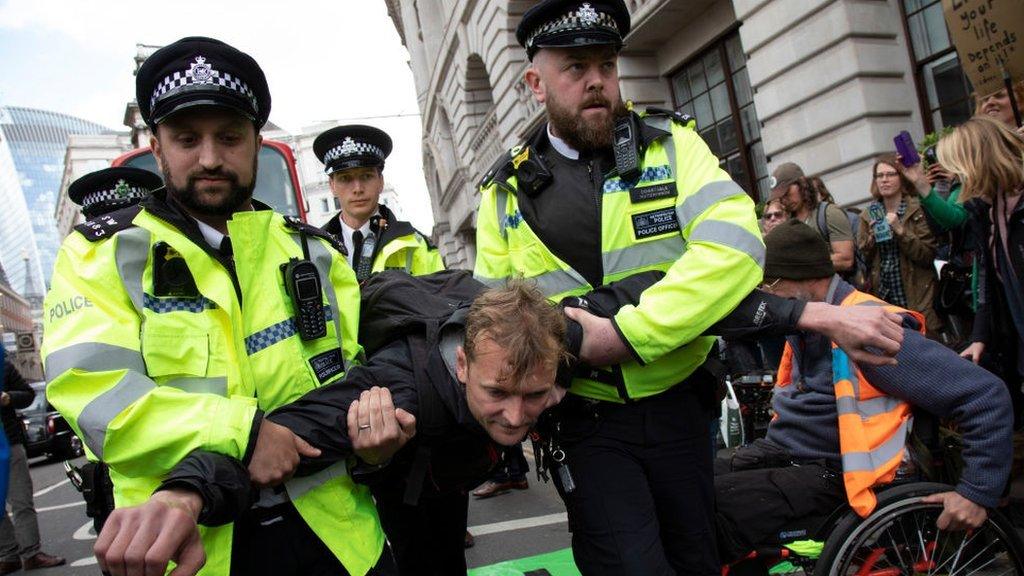
- Published15 March 2015
